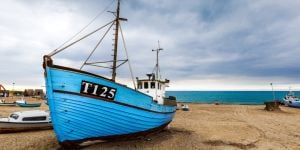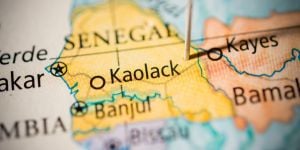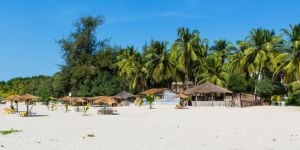
The former capital of Senegal and French West Africa, Saint-Louis was founded by the French in 1659. Located on an island in the Senegal River estuary, its unique location enabled ships from the Atlantic to travel to its ports and made it one of the principal West African trading hubs in the 17th-20th centuries.
Over time, the city, sometimes referred to as the ‘Venice of Africa' thanks to its canals and motorised pirogues, has expanded beyond the island to the neighbouring mainland areas (as well as the Langue de Barbarie (Barbary's Tongue), a narrow spit of land that separates the Senegal River and the Atlantic).
Saint-Louis' influence has declined over the years as cities near Dakar (Thiès, Touba and Mbour) have steadily grown. However, it remains the largest city in northern Senegal, and there are a number of thriving sectors that are open to hiring foreign expertise.
Good to know:
Saint-Louis is also a famous historical and cultural city, having been classified as a UNESCO World Heritage Site in 2000. With its pastel-coloured houses, wrought-iron balconies, numerous quays and majestic Faidherbe Bridge, it is known for its incredible colonial architecture.
The economy of Saint-Louis
Known by locals as Ndar, Saint-Louis' economy is based on three major pillars: fishing, tourism and agricultural trade. Uniquely situated next to the salty Atlantic and freshwater Senegal river, fishing is the core fabric of Saint-Louis' daily life, while farming along the river's banks and in-land pastures have made Saint-Louis the go-to destination for sugar production.
Thanks to its heritage and beautiful architecture, tourism is especially important to Saint-Louis' economy. It is also known for its culture (the Institut Français has a base there), especially music, hosting a world-famous jazz festival every year. In addition, visitors to the area head to the nearby Langue de Barbarie national park and the Djoudj bird sanctuary (also a UNESCO World Heritage site).
As a result, many of the disused buildings are finding new life as hotels, bars and restaurants as the city caters for its foreign influx.
Good to know:
Saint-Louis is under threat from the waves of the Atlantic ocean. In 2003, fearing flooding from the seasonal rains, a four-metre (13 feet)-wide trench was built in the Langue de Barbarie to drain excess rainwater. However, that trench has since grown to 6km and is causing the Saint-Louis region to lose land to the sea.
The labour market in Saint-Louis
For locals, farming, fishing and their associated industries are the main sources of employment, while tourism - from hotels to organised tour groups - employs many Western expats.
Job hunting in Saint-Louis
Many foreigners who work in Saint-Louis have either been transferred by their company to its Senegalese subsidiary or travelled there for work in the tourism trade. If that doesn't include you, you can still find a job in the city via many channels, including the internet and local newspapers.
Why not send spontaneous job applications to companies operating across the city. You might be lucky!
Good to know:
You are more likely to be hired in the tourism and trade fields if you have the skills and qualifications required locally.
Useful links:
We do our best to provide accurate and up to date information. However, if you have noticed any inaccuracies in this article, please let us know in the comments section below.








